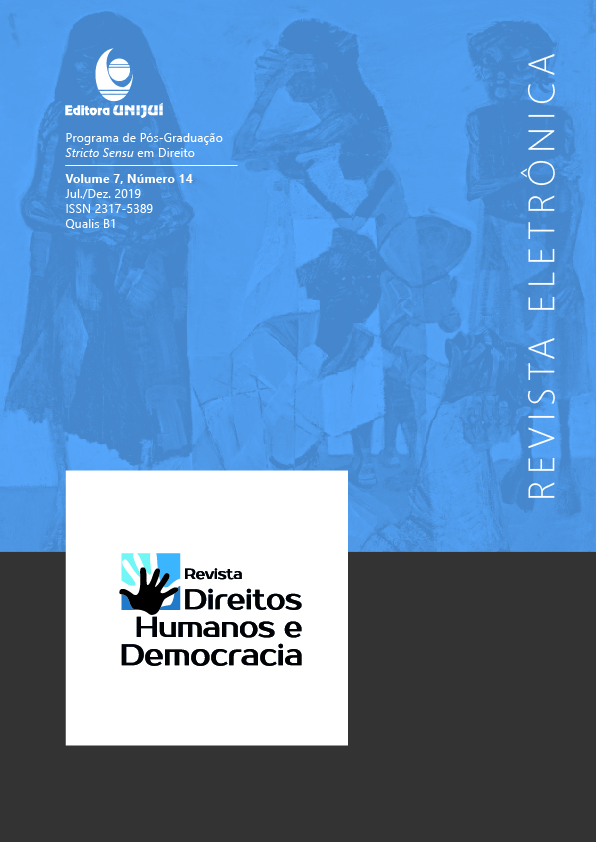O REVENGE PORN NO BRASIL E AS CONSEQUÊNCIAS DA CRIMINALIDADE DIGITAL PARA OS DIREITOS HUMANOS DE CRIANÇAS E ADOLESCENTES: UMA ANÁLISE A PARTIR DAS DECISÕES DO SUPERIOR TRIBUNAL DE JUSTIÇA
DOI:
https://doi.org/10.21527/2317-5389.2019.14.107-127Abstract
O estudo em pauta tem como tema o revenge porn e os direitos humanos de crianças e adolescentes, de modo que para delimitar a abordagem especifica-se a pesquisa a partir das decisões do Superior Tribunal de Justiça no período entre 2014 e 2016. Assim, adota-se como problema de pesquisa como e de que maneira são atingidos os direitos humanos de crianças e adolescentes por meio do revenge porn, bem como de que modo se dá a resposta judicial a tais demandas. Esse questionamento busca ser respondido com auxílio do método indutivo de abordagem, juntamente ao método de procedimento monográfico e da técnica de pesquisa da documentação indireta. Desse modo, conclui-se que direitos humanos de crianças e adolescentes encontram-se atingidos pela conduta do revenge porn, tais como dignidade humana, direitos de personalidade e liberdade. Ademais, por vezes, o revenge porn é auxiliado por outros crimes digitais (sexting e ciberbullying), gerando danos sociais, físicos e psicológicos aos infantes, além de atualmente contar com respostas simplificadas e insuficientes tanto na via jurisdicional quanto política, já que não existe um planejamento para atuações em relação ao tema, tampouco se observa a compreensão de ações que superem as respostas punitivas ou demagógicas.Downloads
Published
How to Cite
Issue
Section
License
By publishing in the Revista Direitos Humanos e Democracia, authors agree to the following terms:
Articles are licensed under the Creative Commons Atribuição 4.0 Internacional (CC BY 4.0), which allows:
Share — copy and redistribute the material in any medium or format;
Adapt — remix, transform, and build upon the material for any purpose, including commercial use.
These permissions are irrevocable, provided the following terms are respected:
Attribution — authors must be properly credited, with a link to the license and indication of any modifications made;
No additional restrictions — no legal or technological measures may be applied that restrict the use permitted by the license.
Notices:
The license does not apply to elements in the public domain or covered by legal exceptions.
The license does not grant all rights required for specific uses (e.g., image rights, privacy, or moral rights).
The journal is not responsible for opinions expressed in the articles, which remain the sole responsibility of the authors. The Editor, with the support of the Editorial Committee, reserves the right to suggest or request modifications when necessary.
Only original scientific articles presenting research results of interest, not previously published or simultaneously submitted to another journal with the same purpose, will be accepted.
References to trademarks or specific products are intended solely for identification purposes and do not imply any promotional endorsement by the authors or the journal.
License Agreement: Authors retain copyright over their articles and grant the Revista Direitos Humanos e Democracia the right of first publication.













